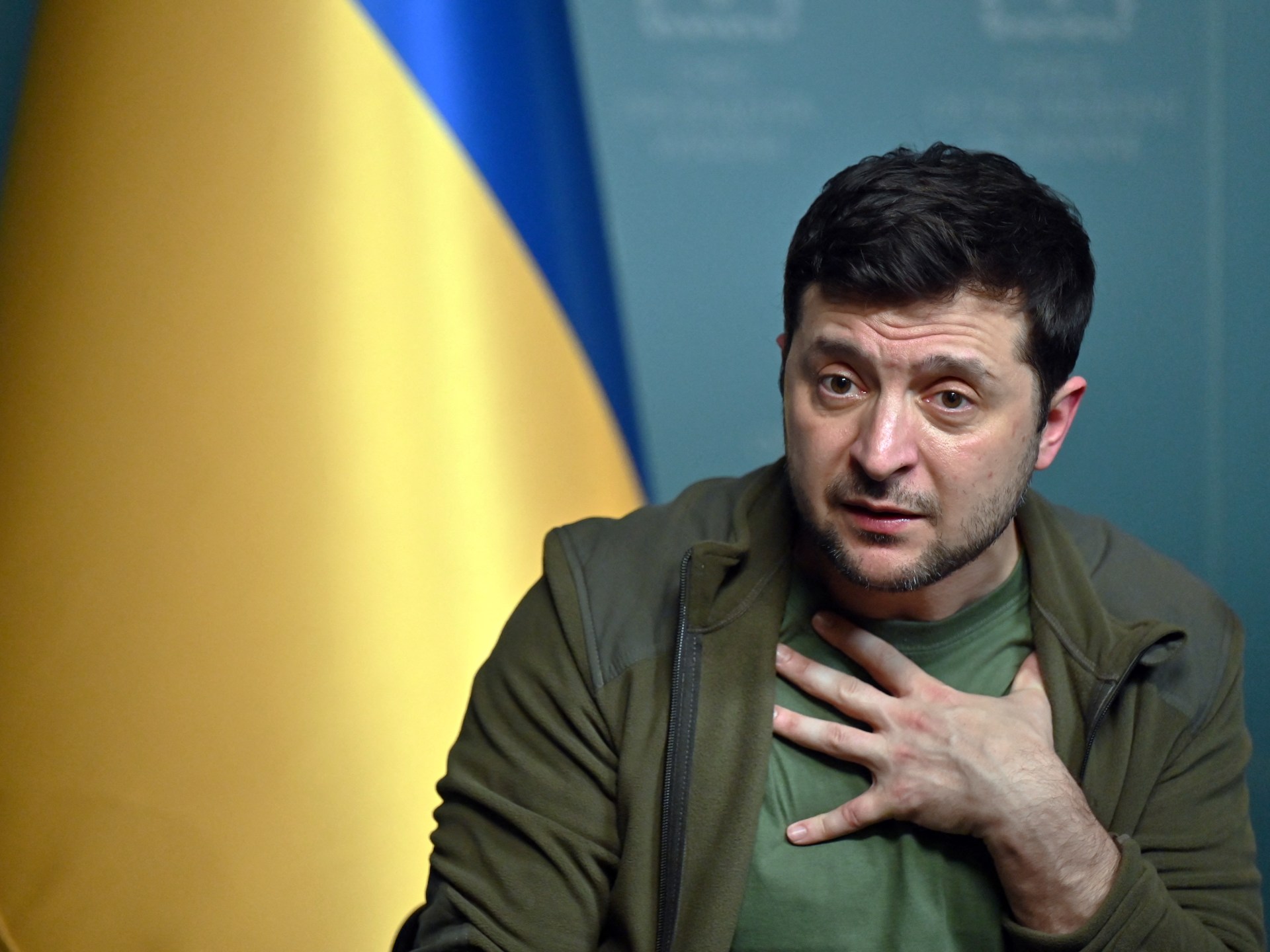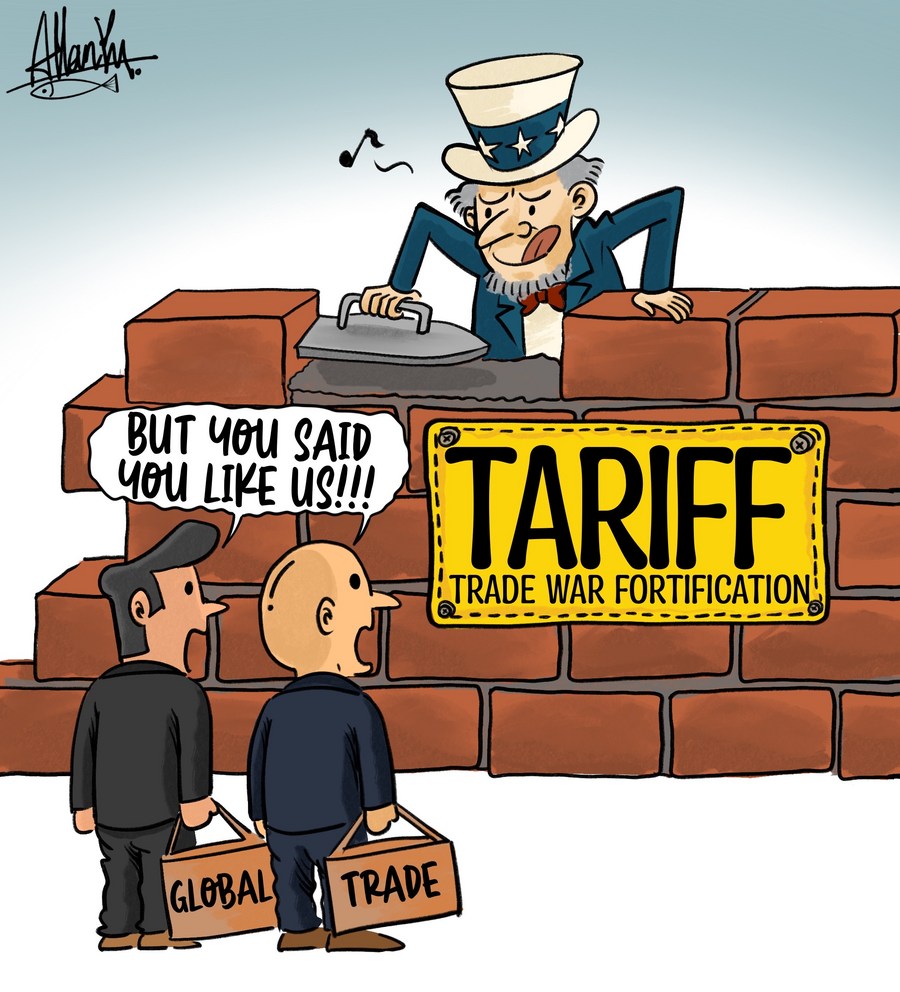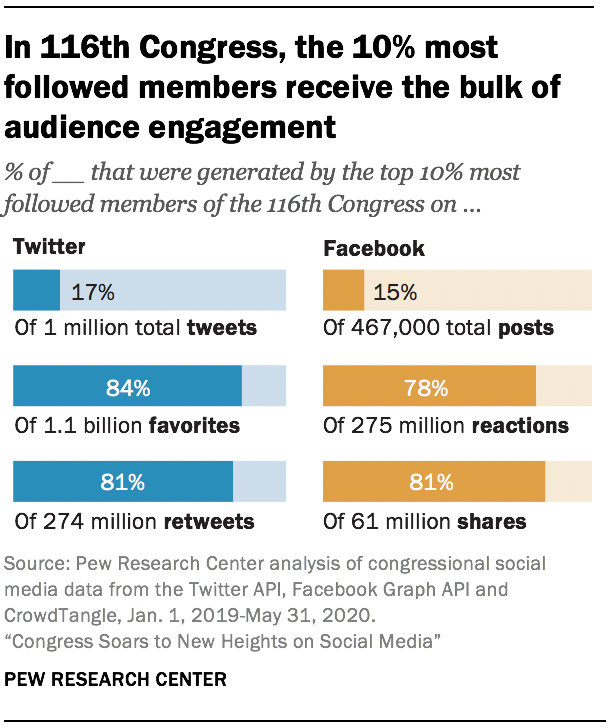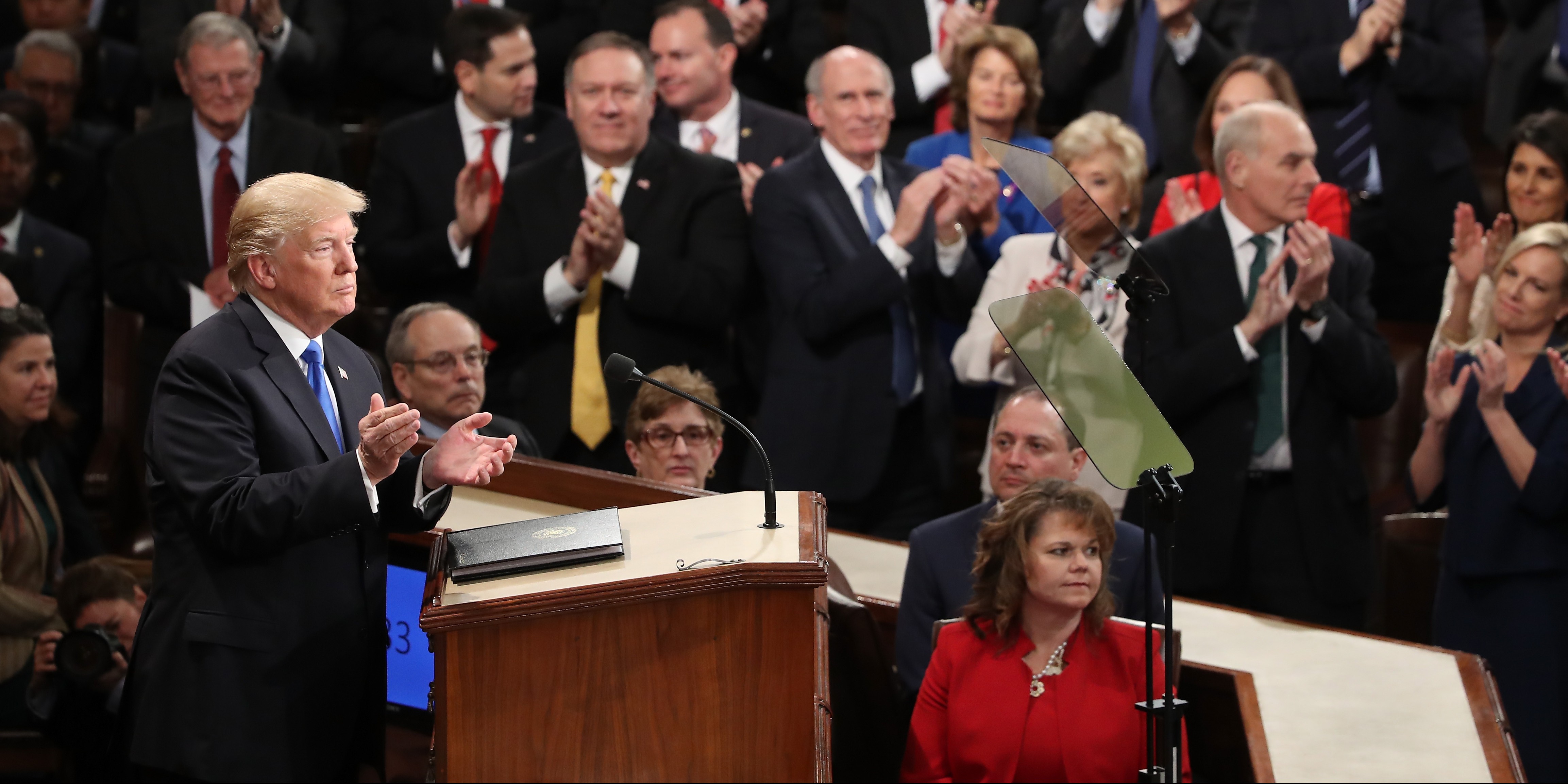Trump's Plea: Ukraine Should Engage In Direct Talks With Putin

Table of Contents
Trump's Argument for Direct Negotiations
Potential Benefits as Presented by Trump
Trump's advocacy for direct talks between Ukraine and Putin centers on the purported benefits of a swift resolution to the conflict. His arguments, often voiced on social media and during public appearances, suggest that:
- Ending the bloodshed: Direct negotiations, Trump argues, offer the fastest path to ending the ongoing violence and saving lives. He has stated (paraphrased, as direct quotes vary across sources), "We need to stop the fighting, and direct talks are the best way to do that."
- Preventing further escalation: Trump suggests that direct engagement could de-escalate the conflict and prevent it from spreading beyond Ukraine's borders. He implies that prolonged conflict increases the risk of wider international involvement.
- Achieving a faster resolution: Trump contends that bypassing international bodies and focusing on a bilateral agreement between Ukraine and Russia would lead to a quicker and more decisive outcome. He often frames this as a matter of efficiency and pragmatism.
Trump's perspective emphasizes the perceived advantages of bypassing international pressure and focusing directly on what he sees as the core issues. He often portrays himself as a dealmaker capable of brokering a peaceful settlement.
Critiques of Trump's Argument
However, Trump's argument faces significant criticism from numerous experts and international bodies. Key counterarguments include:
- Unequal power dynamic: Critics point out the inherent imbalance of power between Russia and Ukraine, arguing that direct talks would severely disadvantage Ukraine, potentially leading to concessions that undermine its sovereignty and territorial integrity. This is not a fair negotiation environment.
- Lack of trust: The deep-seated mistrust between Ukraine and Russia, fueled by years of conflict and alleged Russian aggression, makes meaningful bilateral negotiations highly problematic. Past instances of broken agreements and lack of commitment by Russia raise serious concerns about any promises made in direct talks.
- Historical precedents: Numerous historical examples demonstrate the failure of direct negotiations between aggressors and victims of aggression without significant international pressure and oversight. These past failures highlight the risks of a bilateral approach without a strong framework for accountability and enforcement.
- Risk of further Russian aggression: Many experts fear that direct negotiations without sufficient safeguards could embolden Putin and lead to further Russian territorial expansion or aggression in the region.
International relations scholars widely caution against an approach that could legitimize Russia's actions and potentially reward aggression.
Ukraine's Position and International Concerns
Ukraine's Stance on Direct Negotiations
Ukraine has consistently articulated its conditions for any negotiations with Russia, emphasizing:
- Complete Russian withdrawal: Ukraine demands a full withdrawal of Russian troops from all occupied Ukrainian territories, including Crimea, annexed in 2014. This is a non-negotiable prerequisite for any talks.
- Accountability for war crimes: Ukraine insists on accountability for the alleged war crimes and atrocities committed by Russian forces during the conflict. This includes international investigations and prosecutions.
- Reparations for damages: Ukraine demands reparations for the extensive damage inflicted on its infrastructure and economy by the Russian invasion.
Ukraine's deep-seated distrust of Russia, resulting from past aggressions and the current invasion, makes the prospect of direct negotiations with Putin particularly challenging.
International Community's Response
The international community's response to Trump's proposal has been largely negative, with significant concerns voiced by:
- NATO: NATO allies have emphasized their unwavering support for Ukraine's sovereignty and territorial integrity, rejecting any approach that might legitimize Russia's aggression.
- EU: The European Union has stressed the importance of Ukraine's right to self-determination and the necessity of adhering to international law. They advocate for diplomatic solutions that uphold these principles.
- United States: While the US has stated its commitment to supporting Ukraine, opinions within the US government regarding direct negotiations are diverse, reflecting ongoing political debates.
The international community’s response largely highlights the potential negative ramifications of direct talks without preconditions and emphasizes the importance of maintaining international pressure on Russia. Trump's stance has complicated international cooperation by undermining the existing unity on supporting Ukraine.
Alternative Paths to Peace
Mediation and International Diplomacy
Alternative pathways to a peaceful resolution emphasize the importance of:
- Third-party mediation: The involvement of neutral mediators, such as the United Nations or individual countries with strong diplomatic standing, could facilitate negotiations by fostering trust and communication. This provides a more neutral and structured setting.
- International frameworks: Utilizing existing international legal and diplomatic frameworks, such as the UN Charter and the principles of international law, provides a structure for accountability and compliance. This approach supports a fair and transparent resolution process.
- Phased approach: A gradual, step-by-step approach to negotiations, focusing on initial confidence-building measures and addressing key issues incrementally, could help overcome the challenges of direct talks.
Indirect negotiations, supported by international diplomacy, could yield more durable and just outcomes.
Continued Military Support and Sanctions
Continuing to provide military and financial aid to Ukraine, while maintaining robust economic sanctions against Russia, remains a crucial aspect of any strategy for achieving a lasting peace:
- Military support: Military aid helps Ukraine defend itself and deter further Russian aggression, strengthening its position in negotiations.
- Economic sanctions: Continued and strengthened economic sanctions against Russia create pressure for a diplomatic resolution, penalizing Russia's aggression.
These approaches aim to create conditions conducive to a negotiated settlement that respects Ukraine's sovereignty and territorial integrity. This combined strategy provides leverage and creates a stronger bargaining position for Ukraine.
Conclusion
Trump's proposal for direct talks between Ukraine and Putin presents a complex and potentially risky gamble. While the desire to end the bloodshed is understandable, the significant risks of unequal power dynamics, lack of trust, and potential for further concessions need careful consideration. Alternative paths to peace, involving mediation, international diplomacy, and continued support for Ukraine, offer potentially more sustainable and just outcomes. The situation demands a nuanced approach, and a single solution—such as Trump's plea for direct talks between Ukraine and Putin—is unlikely to be sufficient.
We urge readers to engage in further research and informed discussion about the Russia-Ukraine conflict and the various paths to peace. Understanding the nuances of this complex situation is critical. Consider the range of strategies and their potential consequences before forming an opinion on the best way forward in achieving lasting peace in the region. For more information, explore resources from organizations like the UN and reputable news sources covering the conflict.

Featured Posts
-
 Sylvester Stallone A Visite Mon Atelier Exposition De L Artiste Mondialement Connue
May 12, 2025
Sylvester Stallone A Visite Mon Atelier Exposition De L Artiste Mondialement Connue
May 12, 2025 -
 April 11 13 Yankees Vs Giants Injury Report And Analysis
May 12, 2025
April 11 13 Yankees Vs Giants Injury Report And Analysis
May 12, 2025 -
 The Trump Tariff Impact Toyotas Heavy Burden Compared To Other Automakers
May 12, 2025
The Trump Tariff Impact Toyotas Heavy Burden Compared To Other Automakers
May 12, 2025 -
 Jessica Simpson And Eric Johnson A Look At Their Current Relationship Status Following Split Announcement
May 12, 2025
Jessica Simpson And Eric Johnson A Look At Their Current Relationship Status Following Split Announcement
May 12, 2025 -
 The Zuckerberg Trump Dynamic Impact On Technology And Policy
May 12, 2025
The Zuckerberg Trump Dynamic Impact On Technology And Policy
May 12, 2025
Latest Posts
-
 A Gen Z Influencers Bid For Congress From Social Media Star To Political Contender
May 13, 2025
A Gen Z Influencers Bid For Congress From Social Media Star To Political Contender
May 13, 2025 -
 Local Protest Erupts Over Trumps State Of The Union Message
May 13, 2025
Local Protest Erupts Over Trumps State Of The Union Message
May 13, 2025 -
 Kamala Harris Influencer Seeks Congressional Seat The Next Chapter
May 13, 2025
Kamala Harris Influencer Seeks Congressional Seat The Next Chapter
May 13, 2025 -
 Residents Protest Trumps State Of The Union Address In City State
May 13, 2025
Residents Protest Trumps State Of The Union Address In City State
May 13, 2025 -
 From Kamala Harris Influencer To Congressional Candidate A Gen Z Story
May 13, 2025
From Kamala Harris Influencer To Congressional Candidate A Gen Z Story
May 13, 2025
